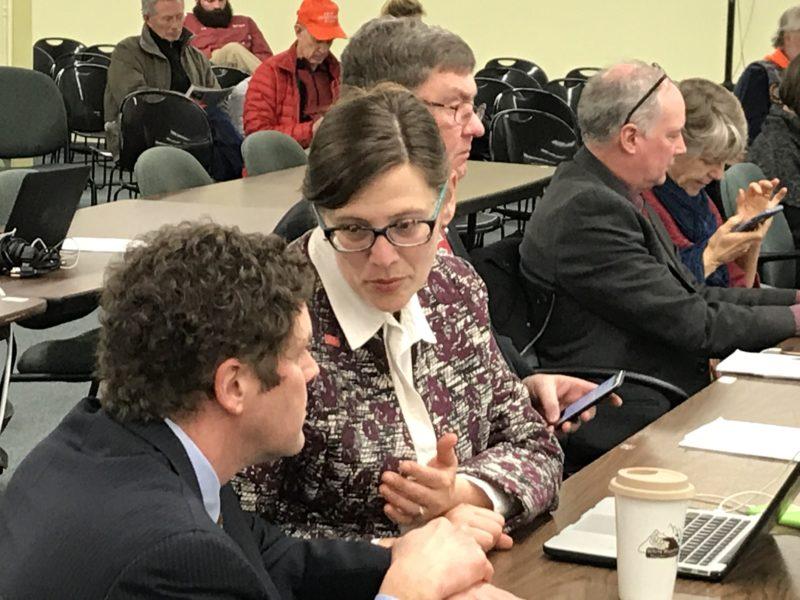CONCORD — The Mass. Office of Energy and Environmental Affairs will “monitor and evaluate” the Site Evaluation Committee’s “shocking” decision Thursday to deny Northern Pass’s application to build a controversial 192-mile transmission line from Pittsburg to Deerfield.
Northern Pass’s bid was recently selected as the sole proposal of 46 to provide 1,200 megawatts of renewable electricity for the Massachusetts Clean Energy Project and had two months to negotiate contracts with that state’s utilities before going before regulators.
In announcing the selection, Massachusetts energy officials said one of the key reasons was Northern Pass’ ability to begin operations in 2020, at least two years earlier than other proposals.
“Massachusetts’ recently selected clean energy procurement project remains conditional on necessary siting approvals and EEA will continue to monitor and evaluate developments in New Hampshire as the administration works to ensure a clean and affordable energy future that progresses toward greenhouse gas emissions reductions,” said Peter Lorenz, Mass. EEA Communications Director in an email.
As opponents of Northern Pass celebrated Thursday’s unexpected vote 7 to 0 to deny Eversource Energy/Northern Pass’ application, reaction was quick from the business community and opponents.
The SEC members said the project does not meet the criteria that it would not negatively impact orderly development of the region. The decision ends eight years of controversy and opposition since Eversource announced in 2010 the plan to bring Hydro-Quebec electricity to the New England grid.
Flawed plan
Jack Savage of the Society for the Protection of New Hampshire Forests, said the committee rejected a proposal that has had fundamental flaws since the beginning. “That is why they could not make their case,” Savage said, noting the committee clearly listened to the people impacted by the project and local officials along the line, most of whom were opposed.
“In identifying the multiple reasons behind their conclusion, the subcommittee members discussed exactly the right issues: undue interference with land use, property values and tourism, and inadequate outreach to communities,” said Savage.
Click below to read the full story on InDepthNH.org

